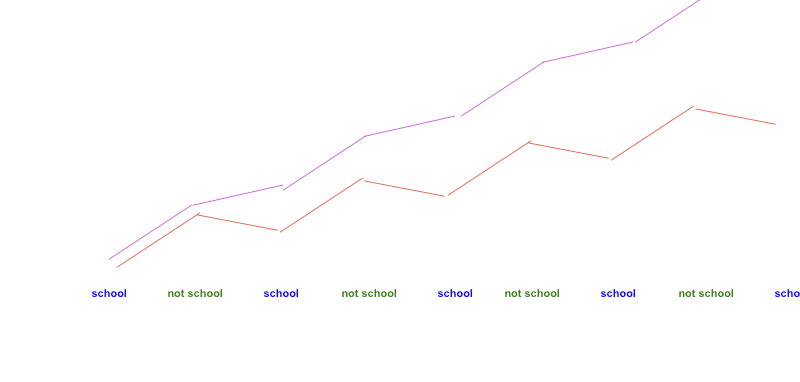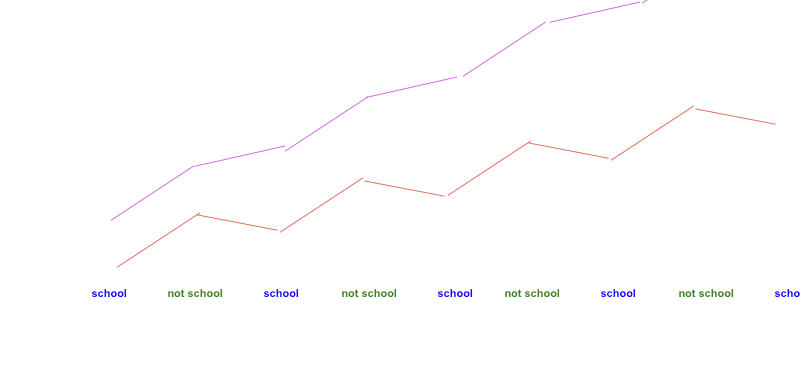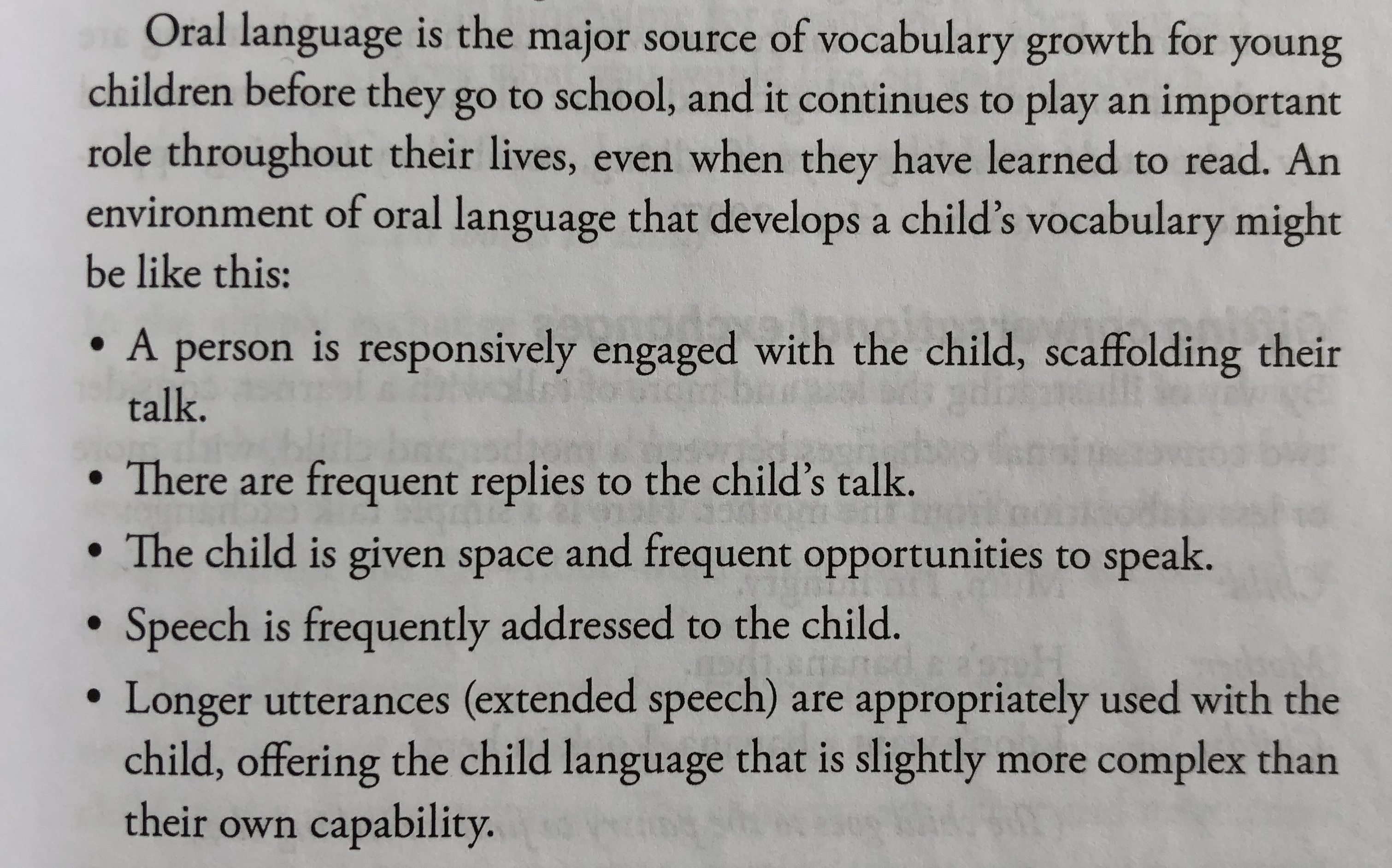
How many words are in these houses?
Some children arrive at primary school with fewer words than others. This puts them at an immediate disadvantage educationally. Factors outside of the school gates (~60%) have a greater impact on test score variance than anything in school (~30%). Teachers - the most important in-school factor impacting on children’s outcomes, account for ~10% of the variability in test scores.* So, every day, children exit the school gates to the world where 60% of the factors impacting on test score variance happen. The world that either developed their big vocabulary - or stunted it. Word-rich - or word-poor.
Those children from word-rich homes reinforce vocabulary taught in school. Each evening they will further their understanding of words; they will develop a nuanced understanding of the various meanings (depth); they will revisit and thus remember the words (breadth). Much of this consolidation will come through conversation.
Those children from word-poor homes will invariably not. They will not develop their understanding of words; nor will they develop nuanced understanding of the various meanings.
This journey might be illustrated thus:

Of course, children from word-rich homes start ahead of the word-poor. So the picture is perhaps more extreme:

The key point is that the gap between word-rich and word-poor increases over time regardless of school. The work done in school to improve vocabulary will disproportionately benefit children from conversational, word-rich homes. Their vocabulary will solidify and consolidate; the word-poor fall back again and again.
Can the oracy and conversation happening in word-rich homes be stimulated in word-poor homes?
Paul Nation and Jannie van Hees came up with the wonderful phrase ‘gifting conversational exchanges.’** They outline their views on what these conversational exchanges entail below:

So, can you gift conversational exchanges to your learners’ homes?
I am personally aware of the following project and would love to hear from school leaders who are actively trying to stimulate such exchanges.
The project involves a targeted year 6 / year 7 cohort and is developed over the summer in a summer school setting. In short, stimulating conversation at home is done through family trees. Children develop their family tree - inevitably there are gaps - and are tasked with both filling in the gaps and with talking to the identified members of their families. They will call up grandparents, discuss aunts and uncles with parents, and so on.
The results are, by all accounts, very powerful and effective at stimulating meaningful conversation in the home.
What's working for you?
=============================
** Dr. J van Hees & Prof. P Nation. (2017).What every primary school teacher should know about vocabulary. Nzcer Press.
Main photo by Belinda Fewings on Unsplash
This blogpost supports our ongoing work on vocabulary development. If you wish you can download our pilot report or trial our vocabulary module via the link below.









